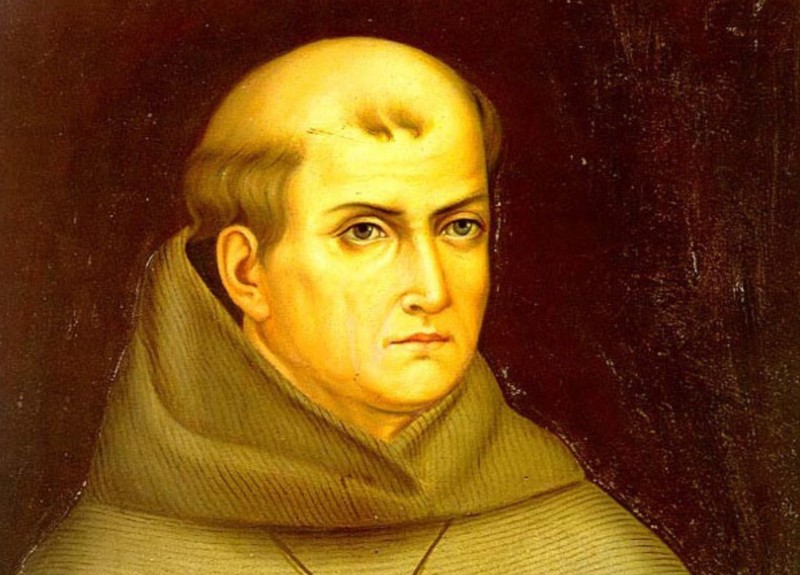Pope Francis announced Thursday that he will canonize Father Junipero Serra, the founder of California's missions and a controversial figure for his role in a process that began the decimation of the Native American population here.
The pope said the canonization -- the formal elevation of a person to sainthood -- will take place in September, when he's scheduled to visit the East Coast.
Here is Reuters' account of the pope's announcement:
"In September, God willing, I will canonize Junipero Serra in the United States, who was the evangelizer of the west of the United States," he told reporters aboard the plane taking him from Sri Lanka to Manila on the second leg of his Asian tour.
Francis is due to visit Philadelphia for a world gathering of Catholic families this fall. While Philadelphia is the only official stop on the tour so far, he is widely expected to visit New York to address the United Nations and Washington to meet President Barack Obama.
Holding the canonization ceremony in the United States opens up the possibility he might visit the western part of the country where Serra worked as a missionary. ...
...The pope said since Serra has for centuries been considered a holy man, he had waved Church rules that require a second miracle to be attributed to the candidate for sainthood after his beatification.
He said Serra was "a great evangelizer."
Pope John Paul II beatified Serra in 1987 -- the first step in the process leading to sainthood. A short Serra biography from PBS explains why that decision drew criticism from Native Americans and others:
... For Alta California's Indians the missions and their Franciscan administrators were part and parcel of an enormously destructive colonization process. The Spanish, largely through disease, were responsible for a population decline from about 300,000 Indians in 1769 to about 200,000 by 1821. The strenuous work regime and high population density within the missions themselves also caused high death rates among the mission Indians. By law, all baptized Indians subjected themselves completely to the authority of the Franciscans; they could be whipped, shackled or imprisoned for disobedience, and hunted down if they fled the mission grounds. Indian recruits, who were often forced to convert nearly at gunpoint, could be expected to survive mission life for only about ten years. As one Friar noted, the Indians "live well free but as soon as we reduce them to a Christian and community life... they fatten, sicken, and die."
Junipero Serra is still a well-known figure in California, a virtual icon of the colonial era whose statue stands in San Francisco's Golden Gate Park and in the U.S. Capital. In 1987 Pope John Paul II beatified Serra, the second of three steps necessary for the Church's bestowal of formal sainthood. Many Indians and academics condemned this decision, pointing to the harsh conditions of mission life and Serra's own justification of beatings. (In 1780, Serra wrote: "that spiritual fathers should punish their sons, the Indians, with blows appears to be as old as the conquest of [the Americas]; so general in fact that the saints do not seem to be any exception to the rule.") Defenders of Serra cited the context of his times, his enormous personal sacrifices and religious zeal, and his opposition to punitive military expeditions against the Indians as exonerating factors. More than two centuries after his death, Junipero Serra is still a pivotal figure in California history and the history of the American West, this time as a flashpoint for controversy over European treatment of Indians.
And for a less critical view from mid-19th century San Francisco, see Serra's life story as related by the Daily Alta California (via the Virtual Museum of San Francisco History).
